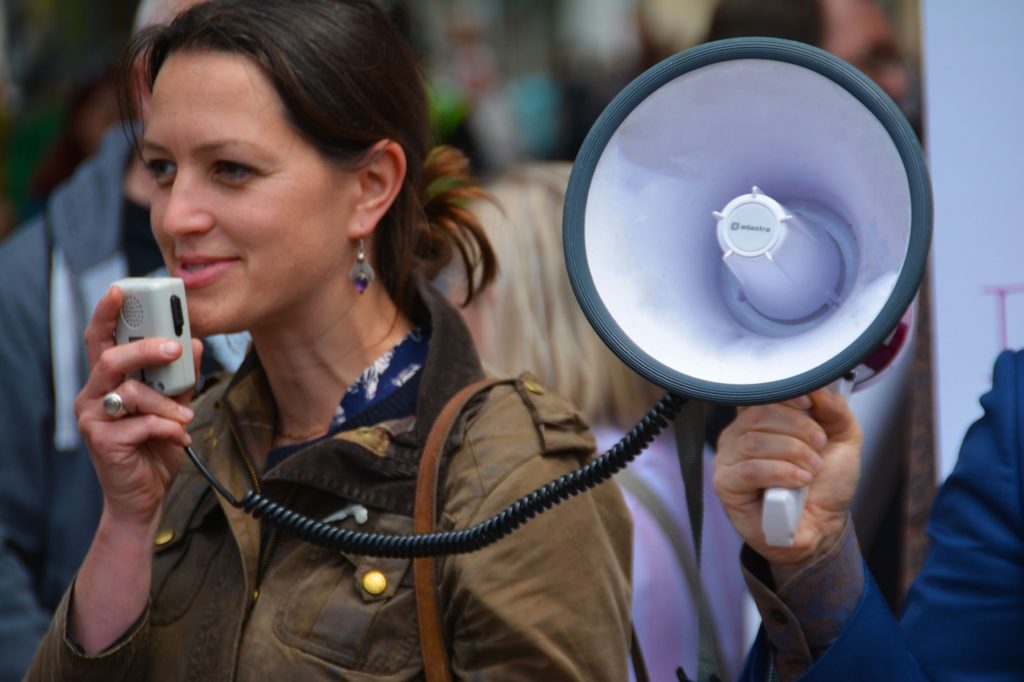- Calls to this hotline are currently being directed to Within Health, Fay or Eating Disorder Solutions
- Representatives are standing by 24/7 to help answer your questions
- All calls are confidential and HIPAA compliant
- There is no obligation or cost to call
- Eating Disorder Hope does not receive any commissions or fees dependent upon which provider you select
- Additional treatment providers are located on our directory or samhsa.gov
Raising Awareness About Eating Disorder Signs and Symptoms

Contributor: Crystal Karges, MS, RDN, IBCLC, Director of Content and Social Media at Eating Disorder Hope/Addiction Hope
In a society that glorifies thinness and dieting while demonizing fat and obesity, eating disorders are often trivialized. With the many misunderstandings that are often perpetuated by the media and our society in general, eating disorders are grossly overlooked and underestimated.
Many individuals who suffer with eating disorders struggle in shame due to the stigmas associated with these mental illnesses.
Creating a greater awareness of eating disorders can help break these roadblocks for those who may be suffering.
What Eating Disorders Are Not
Perhaps one of the common misconceptions about eating disorders is that these are diseases of “vanity”, where individuals fall into eating disorder behaviors solely for the purpose of altering their appearance. This could not be farther from the truth. Eating disorders are not something that people wake up and “choose” to have, much like in the same way a person would not choose to have any other type of illness or disease.
Eating disorders are also grossly defined incorrectly and characterized by generalized terms. For example, it is a common belief that a person with an eating disorder must be severely underweight, but weight is not a defining factor of eating disorders, nor is size or appearance.
A person can have an eating disorder regardless of their weight. Many people will avoid seeking help simply because they feel like they do not fit the appearance of what an eating disorder should look like.
Creating Awareness of Eating Disorders
Promoting a greater understanding for eating disorders is vital to helping sufferers reach out for the help they need. While there are a variety of eating disorders, each with different defining criteria, there are many signs and symptoms that should never be overlooked.
A person who struggles with normalized eating, is chronically dieting, fearful of eating certain foods, engaging in odd food rituals and behaviors around food etc. should seek out professional help and consider speaking with a specialist. These signs should never be ignored, as they are often a cry for help. Check out the plethora of eating disorder resources on Eating Disorder Hope to learn more about these illnesses, as well as ways to connect to help and treatment.
Community Discussion – Share your thoughts here!
What do you think are some of the common misconceptions about eating disorders?
 About the Author: Crystal is a Masters-level Registered Dietitian Nutritionist (RDN) with a specialty focus in eating disorders, maternal/child health and wellness, and intuitive eating. Combining clinical experience with a love of social media and writing, Crystal serves as the Special Projects Coordinator for Eating Disorder Hope/Addiction Hope, where her passion to help others find recovery and healing is integrated into each part of her work.
About the Author: Crystal is a Masters-level Registered Dietitian Nutritionist (RDN) with a specialty focus in eating disorders, maternal/child health and wellness, and intuitive eating. Combining clinical experience with a love of social media and writing, Crystal serves as the Special Projects Coordinator for Eating Disorder Hope/Addiction Hope, where her passion to help others find recovery and healing is integrated into each part of her work.
As a Certified Intuitive Eating Counselor, Crystal has dedicated her career to helping others establish a healthy relationship with food and body through her work with EDH/AH and nutrition private practice.
The opinions and views of our guest contributors are shared to provide a broad perspective of eating disorders. These are not necessarily the views of Eating Disorder Hope, but an effort to offer discussion of various issues by different concerned individuals.
We at Eating Disorder Hope understand that eating disorders result from a combination of environmental and genetic factors. If you or a loved one are suffering from an eating disorder, please know that there is hope for you, and seek immediate professional help.
Last Updated & Reviewed By: Jacquelyn Ekern, MS, LPC on July 17, 2016
Published on EatingDisorderHope.com

The EatingDisorderHope.com editorial team comprises experienced writers, editors, and medical reviewers specializing in eating disorders, treatment, and mental and behavioral health.

